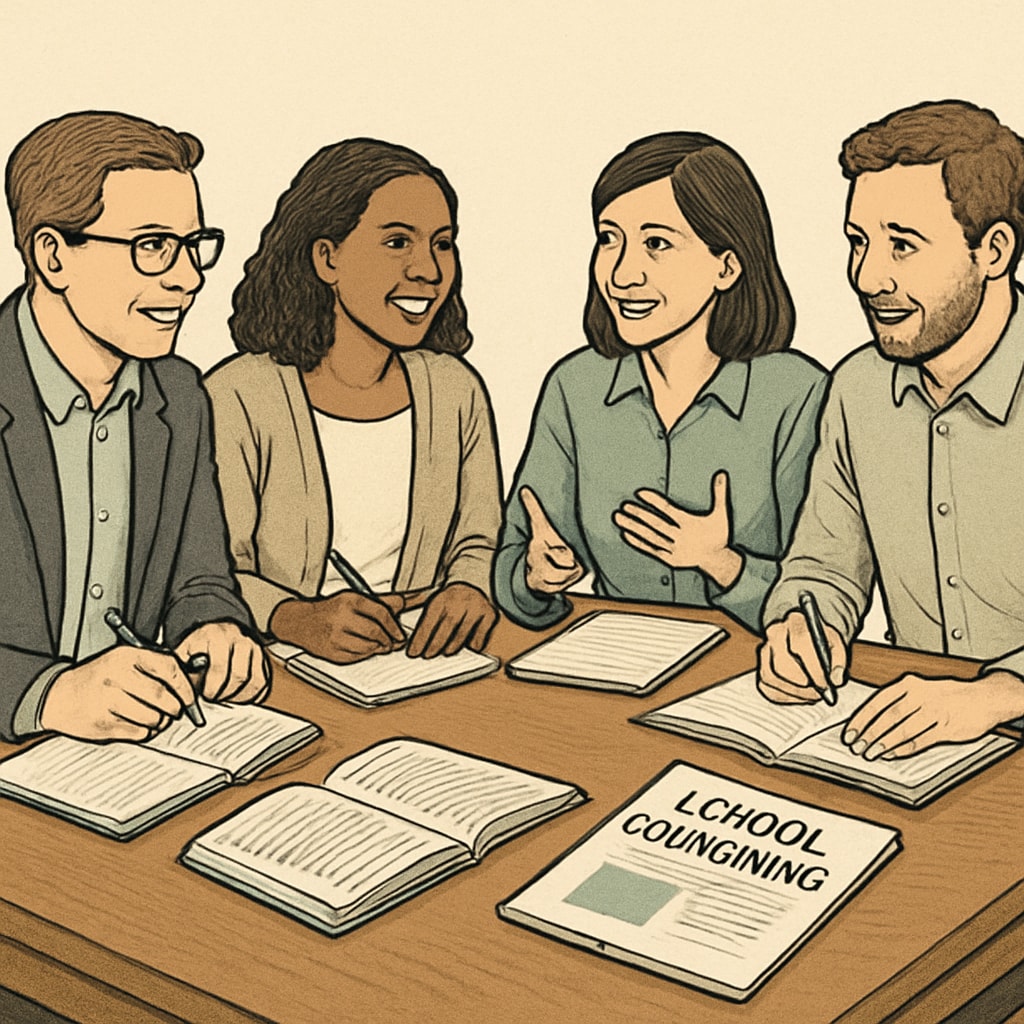Graduate students often seek opportunities to bridge theory with practice, particularly when completing assignments like interviewing school counselors. By engaging directly with professionals in the field, students gain valuable insights into the evolving role of school counselors within the K12 education system. This process not only enriches academic understanding but also opens pathways for collaboration between researchers and practitioners. In this article, we explore the importance of such interviews, examine the challenges faced by school counselors, and propose strategies to foster better cooperation between academia and educational professionals.

The Changing Role of School Counselors in K12 Education
School counselors have traditionally been seen as facilitators of academic success and emotional support for students. However, their role has expanded significantly over the years. Today, counselors are tasked with addressing issues such as mental health, diversity and inclusion, college readiness, and even crisis management. This evolution reflects the complex needs of modern students and the increasing pressures on educators to provide holistic support.
For graduate students aiming to understand this dynamic profession, interviews can serve as invaluable tools. They provide firsthand accounts of how counselors balance these responsibilities and adapt to shifting educational landscapes. Such insights help students contextualize theoretical knowledge acquired in their coursework and apply it to real-world scenarios.
Challenges Faced by School Counselors
Despite their critical role, school counselors face numerous challenges that can impact their effectiveness. Some of these challenges include:
- High Caseloads: Many counselors are responsible for hundreds of students, making personalized attention difficult.
- Lack of Resources: Budget constraints often limit access to tools and professional development opportunities.
- Increasing Mental Health Needs: The rise in anxiety, depression, and other mental health issues among students adds to their workload.
- Administrative Duties: Counselors are often required to perform tasks unrelated to their core responsibilities, such as standardized testing coordination.
Understanding these hurdles can help graduate students approach their interviews with empathy and a deeper appreciation for the complexities of the profession. It also provides a foundation for proposing realistic, impactful solutions in their academic research.

Connecting Theory with Practice Through Interviews
Graduate students conducting interviews with school counselors should aim to achieve two primary objectives: gaining practical insights and fostering meaningful dialogue. To maximize the effectiveness of these interactions, consider the following tips:
- Prepare Thoughtful Questions: Ask open-ended questions that encourage counselors to share their experiences, challenges, and strategies.
- Respect Their Time: Schedule interviews at convenient times and keep them concise.
- Adopt a Collaborative Mindset: Frame the interview as a mutual exchange of knowledge, rather than a one-sided inquiry.
These interviews not only enhance academic projects but also contribute to the broader goal of bridging theory with practice. By understanding the real-world applications of educational theories, students can propose more effective interventions and strategies in their research.
Recommendations for Academic-Practitioner Collaboration
To strengthen the connection between academic research and educational practice, several steps can be taken:
- Establish Partnerships: Universities and schools can collaborate to create internship programs and joint research opportunities.
- Host Workshops: Organize events where educators and researchers can share insights and brainstorm solutions to common challenges.
- Develop Accessible Resources: Provide counselors with tools that translate academic findings into actionable strategies.
By fostering these collaborations, both academia and education professionals can benefit from shared knowledge and innovation, ultimately enhancing the quality of education for students.
As a result, graduate students conducting interviews with school counselors not only fulfill their academic requirements but also contribute to a larger dialogue about improving education systems. This symbiotic relationship between theory and practice is essential for tackling the complex challenges of modern education.
Readability guidance: Use short paragraphs and lists to summarize key points. Ensure transitions between sections are smooth and utilize active voice wherever possible.


